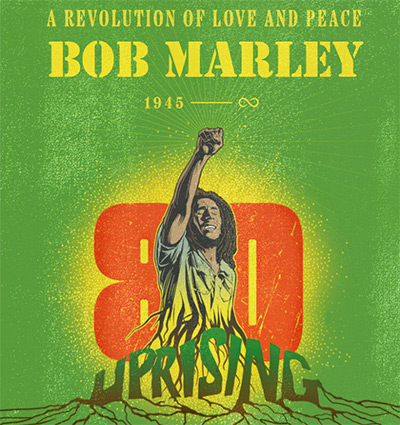‘Dread Locks Dread’: Revisiting Big Youth’s Punky Reggae Classic
Though respectful to Rastafari, Big Youth’s sophomore set pointed to new directions for reggae.

He never had the global reach of Bob Marley, but when it comes to quality Jamaican reggae, Big Youth’s name should nonetheless be writ large. The man credited with coining the term “natty dread,” he’s still arguably his country’s most respected deejay and his classic 70s albums, Screaming Target and the immaculate Dread Locks Dread rank among his genre’s most essential platters.
Born Manley Augustus Buchanan in April 1949, he worked as a diesel mechanic at Kingston’s Sheraton Hotel as a young man. He developed his toasting skills at dances, where he picked up his nickname “Big Youth” and became the resident deejay with Lord Tippertone’s sound system in 1970. Buchanan’s dextrous lyrical skills caught the attention of legendary Jamaican producers including Lee ‘Scratch’ Perry and Phil Pratt, but his early 45s failed commercially and he only scored his first major Jamaican hit in 1972 with “The Killer”: produced by Augustus “Gussie” Clark and based on a version of the rhythm underpinning Horace Andy’s then-recent hit “Skylarking.”
Order Big Youth’s Dread Locks Dread on vinyl now.
Also produced by Gussie Clarke, Big Youth’s debut album, 1973’s Screaming Target showcased his unique half-sung, half-spoken vocal delivery and included his hits “The Killer” and “Tipper Tone Rock” as well as two versions of the earthy titular song, wherein Big Youth paid an eccentric tribute to Clint Eastwood’s maverick celluloid policeman, Dirty Harry Callahan.
Screaming Target was released through Trojan in the U.K., but while it remains an excellent calling card, Big Youth’s second album, 1975’s Dread Locks Dread is still his creative apogee. Recorded at two famous Kingston studios, Randy’s and the Harry J. Studio, it features music from an all-star Jamaican cast including bassist Lloyd Parkes and drummer Sly Dunbar and it includes many of Big Youth’s most enduring songs.
Deeply rooted in Rastafarian ideology, Dread Locks Dread features spirituals such as “House Of Dreadlocks” and “Natty Dread She Want,” but it’s also strong on social commentary, with the likes of “Train To Rhodesia,” and “Lightning Flash (Weak Heart Drop)” railing against injustice and the forces of oppression.
Musically, too, Dread Locks Dread frequently presages future stylistic developments – and sometimes beyond the shores of Jamaica. The bouncy “Train To Rhodesia” and the playful “Some Like It Dread” sounds a bit like the ska-pop crossover sound of 2-Tone, while the instrumental “Big Youth Special” is performed with the kind of aggression and intensity equated with many of the late 70s post-punk acts.
Indeed, Dread Locks Dread’s reputation initially grew due its influence Britain’s punk movement. The band who became The Clash originally considered calling themselves The Weak Heart Drops after hearing “Lightning Flash (Weak Heart Drop),” while Killing Joke bassist/producer Martin Glover’s popular soubriquet ‘Youth’ came directly from his lifelong love of the Jamaican deejay. Even the Sex Pistols/PiL frontman John Lydon was so enamored that he encouraged Virgin Records to sign him to their reggae imprint Front Line. From there on in, Big Youth notched up further late 70s notables including Hit The Road Jack and Isaiah First Prophet Of Old, but his gift to the punky reggae party will always be the immaculately-cropped Dread Locks Dread.












